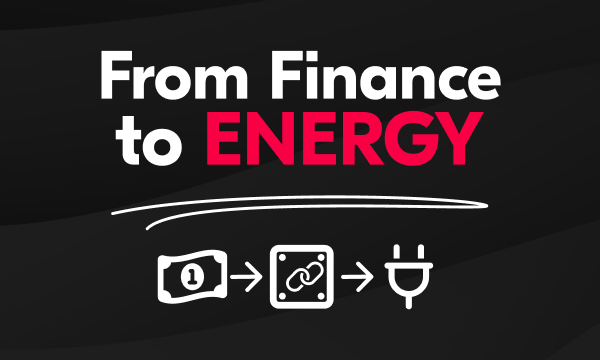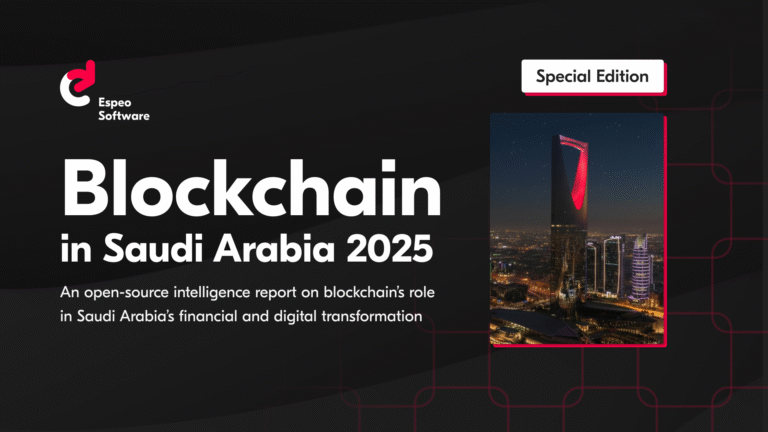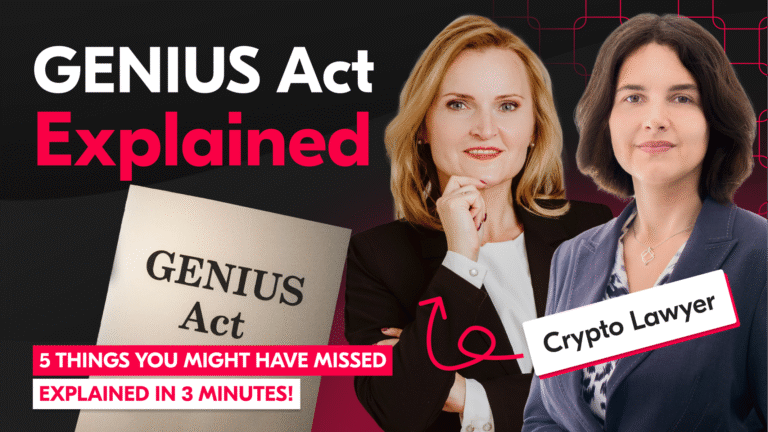Switzerland is a hotbed of medical technology. As Europe’s leading Medtech hub, the Alpine nation hits well above its weight in the sector. Favorable business conditions and a deep talent pool set Switzerland apart as an economic hotspot in the region. Blockchain is sparking intense interest in Medtech. Many blockchain healthcare startups are developing new uses for the technology.
New blockchain use cases in healthcare are emerging in Crypto Valley. One startup working on this is the HIT foundation based in Zug, Switzerland. The company aims to connect clinical researchers with individuals willing to share their medical data. I spoke to CTO Vega Paithankar about the project.

Crypto Valley
A 2018 report from Switzerland Global Enterprise cited a serious commitment to R&D as well as proximity to financial centers and VCs as major factors contributing to Switzerland’s outsized influence. From this favorable Swiss ecosystem, blockchain healthcare startups have a place to try new things and develop into global businesses. From pharmaceutical supply chain management to better patient privacy, blockchain healthcare startups are poised to drive innovation in an industry in need of change.
Espeo’s Blockchain Business Development Manager Paweł Sobotkowski agrees and cited precision in medical research as one factor behind the booming Medtech industry in Switzerland.
“Investor interest in medical technology is growing as multinational companies — and the experts they attract flock here,” said Sobotkowski. “Medicine is often overshadowed by the much bigger finance and fintech sector. However, many projects such as HIT Foundation are implementing blockchain in healthcare and resolving complex problems that impact wider society.”
Medtech in Switzerland
As a center of the pharmaceutical industry, research is a top priority for the major players. However, clinical trials increasingly lack a diverse sample group due to a lack of trust over data handling. Medical data researchers collect meanwhile, is difficult to access and not uniform. Siloed data holds medical research back and makes it more expensive to conduct clinical trials. A blockchain platform that rewards users for sharing anonymized medical data promises to change that.
As medical data becomes increasingly digital, the risk of leaked or mishandled sensitive medical data only increases. Swiss blockchain healthcare startup, HIT Foundation has launched an app that connects researchers seeking medical data with people willing to share. In addition to making clinical studies easier to organize, users will realize the value of their medical data and empower them to take back control of it.
Those seeking data can send out a request for medical information and users can control who uses it. HIT foundation uses the NEM blockchain platform to create a space to tokenize and share medical data. The HIT platform also creates a token ecosystem that rewards people who share their data.
I spoke to HIT Foundation CTO Vega Paithankar to get a glimpse inside the startup’s blockchain use cases in healthcare:
What inspired you to get into crypto and the blockchain industry?
I first learned about bitcoin in 2011 while working as a software engineer in California, and I got quite interested in the technology and how it bypasses the problems of digital payment systems — especially when it comes to censorship and cross-border payments.
The idea of decentralized money that’s independent of governments and the banking industry is empowering and has the potential to solve many problems in the world.
Unfortunately, I wasn’t interested enough to actually go and buy any bitcoin at the time. But I still stayed interested in this topic and the more I researched it, the more I realized that was definitely the type of project that I want to be involved in.
What does HIT use blockchain to do?
HIT Foundation is a decentralized marketplace for health information. We use the blockchain as a platform for researchers to say, ‘we’re looking for patients who fit a certain profile.’ We let the user decide whether they agree with the purpose of the request and whether they trust the organization that’s asking for it.
For example, if it’s a university hospital you might be more inclined to contribute your data than if it’s a health insurance or a marketing company. Blockchain is the broadcast medium to send out these requests.
Health information is extremely valuable and privacy-sensitive. As an individual, your health data ought to belong to you, and you should have the right to decide who you share it with, for what purpose, and on what terms. The entire healthcare industry benefits from your data except you, and HIT Foundation aims to change that.
By using the blockchain as a global decentralized platform for posting queries for data, we allow health researchers to reach individuals that fit their desired profile and then reward those individuals who agree to provide their health data.
Which markets are you most active?
Our users come from all parts of the world. We’re working on forming partnerships with healthcare organizations in Switzerland, Vietnam, the US, and are also in talks with NGOs in Western Africa and Central America to use our platform to deliver better healthcare in communities in difficult geographies.
We don’t think health data should be confined to one country if it can benefit you and the state of research. There’s no reason why we should restrict it.
Are there challenges with jurisdiction?
Jurisdiction is an issue for us. Different countries have different regulations surrounding health data protection. However, because we don’t touch the data directly, we don’t even take the risk of mishandling our users’ health data. We don’t take control of it in the first place.
We just connect the seeker and the individual and then at that point, it is the seeker’s responsibility to conform to any regulations on data privacy.
HIT Foundation promises to incentivize patients to share their medical data. How will that work in practice?
We believe that individuals will be motivated to share their data if they are able to exercise their right to consent or not. They’re given complete information about who is requesting the data and for what purpose.
Then it tells you what the incentives are in terms of HIT tokens if you provide answers to all the questions. We don’t actually take control of the data, we don’t put the data anywhere online but instead, we store a cryptographic signature as proof on the blockchain.
If there’s a dispute where the researcher claims that they didn’t get all the answers or the answers were bogus, then both sides can use the cryptographic proof to prove what was sent and what was received. Obviously, if the tokens were sent or not all that proof is on the blockchain.
In the whitepaper, there’s a quote: “tokenizing health data is a revolutionary way to motivate individuals to digitize and share their data.” Could you clarify this?
We’ve found that different people have different reasons and levels of motivation to participate in a system like ours. A lot of people are genuinely excited about blockchain use cases in healthcare.
Many have experienced first hand the power of modern medicine and the need for continuing research to find treatments for terrible diseases. At the same time, people worry about the loss of privacy and of control over their health data, as well as by not seeing the benefits of their contributions.
We are hoping to address these various motivations by paying attention to the control, traceability and even monetary value of health information through tokenization.
What pushback do these types of blockchain use cases in healthcare face? Some may argue that it’s encouraging people to give up valuable data for a small fee.
We have talked to people who have expressed concerns — that we’re asking people to give away their medical data for a few dollars.
And if it were that simple, clearly that’s not something we’d want to do. We see this as more of a token — literally. It’s not supposed to represent the full value of your medical data — at least if you participate in just one study.
One researcher may not pay you what you think your whole medical history is worth. But over time, by tokenizing data, that individual can recognize in real time that researchers value their time, value their privacy, value their right to control and consent to sharing their data.
We expect the monetary part to be one small part of the motivation for individuals. I think the control and the power to decide and actually being able to see and verify where their information is going and for what purpose. That is more likely to motivate people in general.
How will users acquire the HIT tokens? Will they be on exchanges?
Like any other crypto token, it is tradeable peer-to-peer. We expect that at least a few exchanges across the world will list the HIT token. We’ll see whether it will be exchangeable for the official currency or for another cryptocurrency like bitcoin.
However, we don’t expect our users to go in directly and create an account on an exchange. Instead, we hope to build up an ecosystem around this where other players in the health and well-being sector like gyms and health food stores and massage therapists will accept these tokens as full or partial payments for goods and services.
Then those who aggregate these coins will need to have accounts. But that’s actually worth their time because they’d be exchanging potentially thousands of dollars worth of tokens. Or they can turn around and sell them back to other researchers.
Could you elaborate on the platform’s token economy and explain how the two tokens help keep it stable?
So just the mechanics of the token — it’s based on top of the NEM blockchain. It is just a pure utility token, there are no smart contracts or executable code around it. But as I mentioned, we will include things like cryptographic commitments of data to resolve conflicts to an arbiter.
There is a fixed supply of tokens. We reserve 20 or 30% for the development of the protocol and of the system and to incentivize partners to join the platform. But we distribute the bulk of the tokens to users who sign on to our platform.
So if you download the app, you will get a small onboarding bonus. This currently doesn’t have any monetary value. We do expect that as the ecosystem matures, given the finite token supply that it will naturally find a value.
Researchers have to acquire these tokens on the open market based on supply and demand if they want to use our system — which could be hundreds of thousands of users. We hope that it will naturally find a value.
Why did you decide on the NEM platform? What advantages does it offer over other blockchain platforms?
Early on when we started building out our platform, Ethereum was the biggest platform for tokens. The problem was that it had a lot of scalability problems where the transaction fees were very high. Bitcoin was even worse in terms of backlogs and fees.
The whole system was creaky. There was no guarantee that your transaction would go through in a short amount of time. NEM had very aggressive scaling plans. They have very low transaction fees.
It’s more like a proof-of-stake model that could, in theory, lead to centralization. But it’s still an open-source public blockchain. Given their scaling plans, we felt comfortable that we wouldn’t run into the same issues.
Conclusion
Blockchain use cases in healthcare continue to emerge as entrepreneurs come up with ways to use the technology.
HIT foundation not only creates a platform that connects data seekers and data providers, but it also introduces an incentive for people to participate in clinical trials and contribute to medical research.
This blockchain use case will not only make clinical trials easier and cheaper but it will also benefit platform users directly. Switzerland continues to be a hub for blockchain healthcare startups.
The Swiss Medtech sector is among the most advanced in the world and will continue to be a center of new blockchain use cases in healthcare.
Vega will be a panel speaker at an upcoming blockchain meetup on digital health organized by the Swiss-Polish Blockchain Association (of which Espeo is part) on April 11th in Zug. Be sure to join!
Special thanks to Blockchain Business Development Manager for Switzerland and the UK, Paweł Sobotkowski for setting up the interview and for editorial support.



